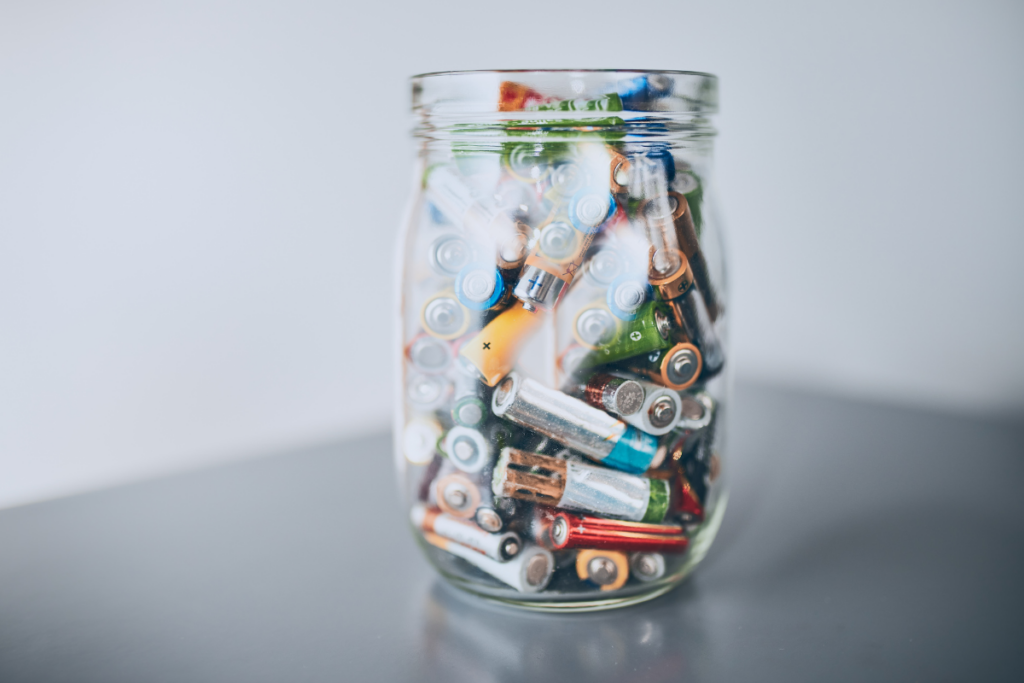A huge rise in battery fires is putting local garbos and the environment at risk. Here’s how to safely dispose of your old tech.
We’ve all got that drawer full of old battery powered gadgets, like the ancient electric toothbrush, or maybe even a kids toy that’s long since lost its novelty value.
But if you’re on a spring-cleaning binge and thinking about chucking these battery-powered bits into the regular bin, think again. That move isn’t just bad for the planet, it’s also a serious fire hazard.

The scary rise of battery fires
Green Industries SA chief executive Josh Wheeler says there’s an increasing risk of fires from batteries being placed in household and kerbside bins.
“We’ve heard reports from industry indicating that there are upwards of 10,000 fire reports relating to batteries across Australia annually,” he says.
Just last month, a battery caused a fire in a garbage truck in the Adelaide Hills, causing more than $150,000 damage.
“As the truck has compacted the rubbish, it has then caught on fire, which is obviously very dangerous,” Josh says.
Plus, these fires can happen at home as well. The Metropolitan Fire Service (MFS) reported a 650 per cent increase in annual lithium-ion battery incidents from 2019 to 2023, jumping from just four to 30 incidents.
As we head into bushfire season, it’s even more important to dispose of our batteries properly, by taking advantage of battery recycling programs and drop-off events.

How to dispose of e-waste and batteries year-round
The good news is that for many batteries, you can already recycle these locally for free to keep them out of our bins. It’s dangerous to throw any batteries in the bin – not just embedded ones.
Collection points for any standard loose batteries, such as AA, AAA, C, D, 9V, 6V and button batteries, are available at your local Aldi, Bunnings, Coles, Foodland, IGA or Woolworths. Many councils also offer dedicated e-waste drop-off points. All your local spots can be found here.
You also can’t just throw your old batteries straight into these recycling bins. Josh says both ends of the battery should be taped up, and stored in a glass container in a safe location before they’re dropped off.
“There are particular issues around the button batteries, especially keeping them away from children and animals (so they can’t be swallowed),” he says.

Recycling batteries: A win for the environment
Aside from preventing dangerous fires, recycling batteries is also a win for the environment.
Batteries contain valuable metals like lithium, cobalt, and copper that can be reused in manufacturing, reducing the need to mine and refine virgin materials.
This helps us move towards a more sustainable, circular economy where fewer resources go to waste.
When batteries end up in landfill, they can also leak harmful chemicals into the soil and water, posing long-term environmental risks.
By recycling, we ensure that these materials are recovered and repurposed, reducing the overall environmental footprint.

What about embedded batteries?
Products with embedded batteries are a little more difficult to dispose of.
Last weekend, South Australians had their first opportunity to recycle embedded battery products for free, in a Green Industries SA initiative with the Adelaide Hills Region Waste Management Authority, Campbelltown City Council, the City of West Torrens and the Northern Adelaide Waste Management Authority.
Josh says the focus on embedded battery products is intentional.
“I think there’s an education awareness role to help the community to know what they should be doing with embedded battery products.
“People might be disposing of these products without even realising there’s a battery in them, so part of the campaign is to try to approve that awareness.”
Stay tuned for similar events in the future.
For more information on this embedded battery event, visit www.greenindustries.sa.gov.auFor information on how to properly dispose of batteries, e-waste and anything else you want to recycle, the Which Bin website is the place to go.

















